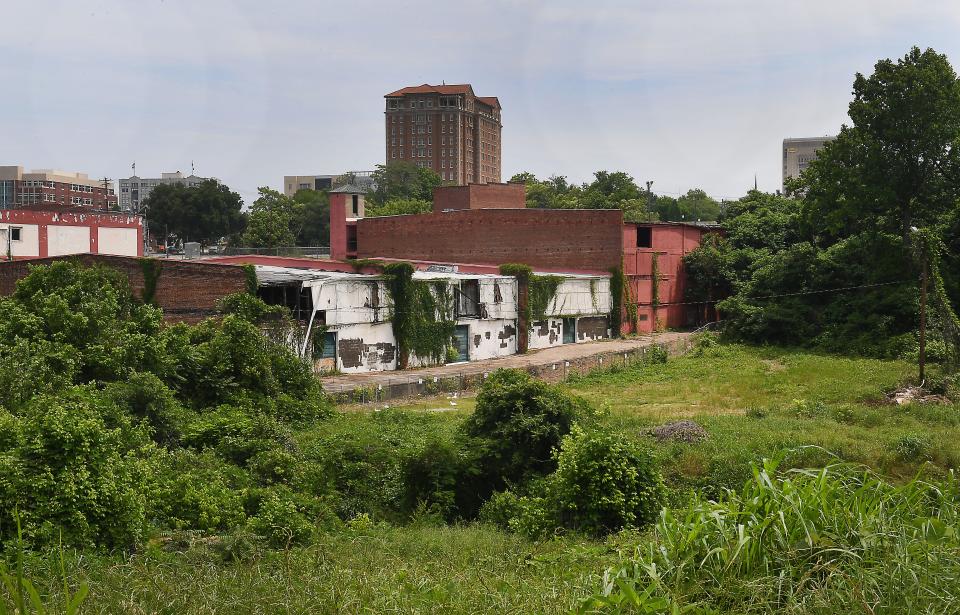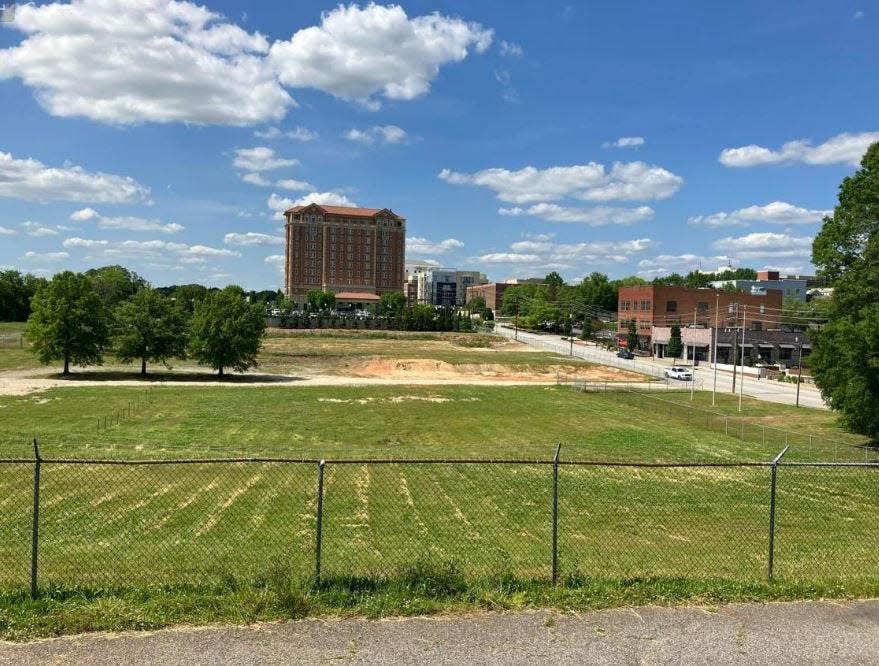Minor League Baseball Update: What you need to know about stadium project in Spartanburg
Last month's bombshell announcement that Spartanburg will get its first minor league baseball team since 1994 is just the first of many steps needed before the first crack of a bat is heard, city leaders say.
"There are important milestones ahead," City Manager Chris Story said. "We'll have designs, then various agreements, and on down the line. The next year is going to be real interesting."
On May 23, a group of public and private partners announced a new stadium will be built next to the downtown A.C. Hotel and host a Minor League Baseball affiliate of the Texas Rangers, currently playing as the Down East Wood Ducks in Kinston, North Carolina.

It will be part of a 16-acre mixed-use site in the area known as the Grain District on Daniel Morgan Avenue, just off West Main Street. The $250 million project will also include multifamily housing, office space and entertainment options.
The city will own the 3,500-seat stadium, and it will be developed by The Johnson Group of Spartanburg. The team could begin play as soon as 2025, some 31 years after the Spartanburg Phillies last played at Duncan Park.
How Spartanburg landed a team Here's how Spartanburg landed a Minor League baseball team, downtown stadium project
The partnership includes the City of Spartanburg, Spartanburg County, the State of South Carolina, OneSpartanburg, Inc., The Johnson Group and Diamond Baseball Holdings, an organization that operates select minor league clubs affiliated with Major League Baseball.
Here's what's coming next
∎ City spokesman Christopher George said the next step is a development agreement to be brought before City Council and Spartanburg County Council for approval.
∎ Then development plans will be presented publicly to the city's Design Review Board, which oversees all development projects in the downtown area. Story told the Herald-Journal this week that could possibly happen as soon as August.
"This is an entirely separate process from any potential rezoning," George said. "Once approved by the DRB, those designs would not need to be approved by City Council.
There's also the possibility that certain parcels within the 16-acre tract will need to be rezoned to accommodate development, according to George.
"If that is needed, the rezoning request would be considered by the Planning Commission first, and then go before City Council if approved," George said.
With approvals in hand, the developer can move forward with site preparation, water, sewer and electrical infrastructure improvements.
Story said by that point, the city will have a better idea of when stadium construction will start and which, if any, streets will be closed.
Breaking down $250 million in funding sources

Over the last three years, the city has obtained $54 million in state earmarks for downtown infrastructure, including a $10 million earmark in the recently adopted 2023-24 state budget from Sens. Scott Talley of Spartanburg and Harvey Peeler of Gaffney through the Department of Commerce, and $20 million in the 2023-24 budget from Rep. Max Hyde of Spartanburg.
Story said he's still working on breaking down exactly how much each source is contributing to the $250 million for the project.
Some funding will come from the city's hospitality tax revenues. The 2% tax is imposed on all prepared food and beverages served on-site, paid for by customers. It generates roughly $6 million a year for the city and can be used for tourism-related projects.
More funding is expected to come from revenues generated by ticket sales at the ballpark, Story said.
He added that no general fund money in the city's budget will be used for the project. The general fund pays for core city services such as police and fire protection and street maintenance.
The city will also get revenue from leasing the stadium to Diamond Baseball Holdings, owner of the yet-to-be-named team.
In addition, the city will gain property tax revenue from the Johnson Group, which owns the 16-acre site, Story said.
Yet to be determined is how much each of the yet-to-be-identified private investors kicks in, he said.
"The nuts and bolts about this process, it's still quite early," Story said, "We are real excited about what this project is going to mean for really all of Spartanburg County, but certainly for downtown Spartanburg. It is a big deal, lots of positive impacts to come. It's going to be exciting to see it all come together."
This article originally appeared on Herald-Journal: Designs, agreements next steps for baseball stadium in Spartanburg

